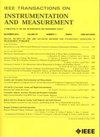基于状态挖掘的信念规则库的液体运载火箭潜在故障诊断
IF 5.9
2区 工程技术
Q1 ENGINEERING, ELECTRICAL & ELECTRONIC
IEEE Transactions on Instrumentation and Measurement
Pub Date : 2025-08-29
DOI:10.1109/TIM.2025.3604108
引用次数: 0
摘要
提出了一种新型液体运载火箭潜在故障诊断方法。该方法旨在解决故障数据缺乏、专家认知有限以及故障引发的新系统潜在状态等问题。信念规则库(BRB)模型作为一种可解释的方法,可以将解决前两个问题的数据和知识结合起来。为车辆的FDs提供了依据。但是,当车辆发生故障时,其内部机制发生了变化,可能存在新的系统状态。受BRB输出框架的限制,它无法检测到这些潜在的故障。在此基础上,提出了一种具有自适应识别框架的状态挖掘器(BRB- m)。它可以通过输出命题的组合来挖掘新的系统状态。然后,基于BRB-M建模过程的透明性,对其进行溯源分析,定量分析各输入特性的影响。为了提高诊断精度,提出了BRB-M的优化模型。为了验证该方法的有效性,进行了车辆实验。实验结果表明,该方法的诊断准确率为97.00%,比模糊理论和BP神经网络分别提高了29.11%、23.17%。本文章由计算机程序翻译,如有差异,请以英文原文为准。
Latent Fault Diagnosis for Liquid Launch Vehicle Using Belief Rule Base With State Miner
A new latent fault diagnosis (FDs) method is developed for a liquid launch vehicle. The proposed method aims to solve three challenges: lack of failure data, limited expert cognition, and new system latent state triggered by faults. As an interpretable method, the belief rule base (BRB) model can both combine the data and knowledge that can solve the first two problems. It provides a basis for FDs of the vehicle. However, when the vehicle fails, its internal mechanism changes, and the new system state may exist. Limited by the output framework of BRB, it cannot detect these latent faults. Hence, a new BRB with state miner (BRB-M) is proposed with an adaptive discernment framework. It can mine the new system states by the combination of output propositions. Then, the traceability analysis of BRB-M is conducted based on the transparency of its modeling process, and the influence of each input characteristic is analyzed quantitatively. To improve the diagnosis accuracy, an optimization model is put forward for BRB-M. To illustrate the performance of the proposed method, an experiment of vehicle is conducted. In the experiment, the diagnosis accuracy is 97.00%, and increases 29.11%, 23.17% compared with the fuzzy theory and BP neural network.
求助全文
通过发布文献求助,成功后即可免费获取论文全文。
去求助
来源期刊

IEEE Transactions on Instrumentation and Measurement
工程技术-工程:电子与电气
CiteScore
9.00
自引率
23.20%
发文量
1294
审稿时长
3.9 months
期刊介绍:
Papers are sought that address innovative solutions to the development and use of electrical and electronic instruments and equipment to measure, monitor and/or record physical phenomena for the purpose of advancing measurement science, methods, functionality and applications. The scope of these papers may encompass: (1) theory, methodology, and practice of measurement; (2) design, development and evaluation of instrumentation and measurement systems and components used in generating, acquiring, conditioning and processing signals; (3) analysis, representation, display, and preservation of the information obtained from a set of measurements; and (4) scientific and technical support to establishment and maintenance of technical standards in the field of Instrumentation and Measurement.
 求助内容:
求助内容: 应助结果提醒方式:
应助结果提醒方式:


